This is a worked example of cuFFT execution and memcopies using streams in CUDA on the Kepler architecture.
Here is the code:
#include <stdio.h>
#include <cufft.h>
#define NUM_STREAMS 3
/********************/
/* CUDA ERROR CHECK */
/********************/
#define gpuErrchk(ans) { gpuAssert((ans), __FILE__, __LINE__); }
inline void gpuAssert(cudaError_t code, char *file, int line, bool abort=true)
{
if (code != cudaSuccess)
{
fprintf(stderr,"GPUassert: %s %s %d\n", cudaGetErrorString(code), file, line);
if (abort) exit(code);
}
}
/********/
/* MAIN */
/********/
int main()
{
const int N = 5000;
// --- Host input data initialization
float2 *h_in1 = new float2[N];
float2 *h_in2 = new float2[N];
float2 *h_in3 = new float2[N];
for (int i = 0; i < N; i++) {
h_in1[i].x = 1.f;
h_in1[i].y = 0.f;
h_in2[i].x = 1.f;
h_in2[i].y = 0.f;
h_in3[i].x = 1.f;
h_in3[i].y = 0.f;
}
// --- Host output data initialization
float2 *h_out1 = new float2[N];
float2 *h_out2 = new float2[N];
float2 *h_out3 = new float2[N];
for (int i = 0; i < N; i++) {
h_out1[i].x = 0.f;
h_out1[i].y = 0.f;
h_out2[i].x = 0.f;
h_out2[i].y = 0.f;
h_out3[i].x = 0.f;
h_out3[i].y = 0.f;
}
// --- Registers host memory as page-locked (required for asynch cudaMemcpyAsync)
gpuErrchk(cudaHostRegister(h_in1, N*sizeof(float2), cudaHostRegisterPortable));
gpuErrchk(cudaHostRegister(h_in2, N*sizeof(float2), cudaHostRegisterPortable));
gpuErrchk(cudaHostRegister(h_in3, N*sizeof(float2), cudaHostRegisterPortable));
gpuErrchk(cudaHostRegister(h_out1, N*sizeof(float2), cudaHostRegisterPortable));
gpuErrchk(cudaHostRegister(h_out2, N*sizeof(float2), cudaHostRegisterPortable));
gpuErrchk(cudaHostRegister(h_out3, N*sizeof(float2), cudaHostRegisterPortable));
// --- Device input data allocation
float2 *d_in1; gpuErrchk(cudaMalloc((void**)&d_in1, N*sizeof(float2)));
float2 *d_in2; gpuErrchk(cudaMalloc((void**)&d_in2, N*sizeof(float2)));
float2 *d_in3; gpuErrchk(cudaMalloc((void**)&d_in3, N*sizeof(float2)));
float2 *d_out1; gpuErrchk(cudaMalloc((void**)&d_out1, N*sizeof(float2)));
float2 *d_out2; gpuErrchk(cudaMalloc((void**)&d_out2, N*sizeof(float2)));
float2 *d_out3; gpuErrchk(cudaMalloc((void**)&d_out3, N*sizeof(float2)));
// --- Creates CUDA streams
cudaStream_t streams[NUM_STREAMS];
for (int i = 0; i < NUM_STREAMS; i++) gpuErrchk(cudaStreamCreate(&streams[i]));
// --- Creates cuFFT plans and sets them in streams
cufftHandle* plans = (cufftHandle*) malloc(sizeof(cufftHandle)*NUM_STREAMS);
for (int i = 0; i < NUM_STREAMS; i++) {
cufftPlan1d(&plans[i], N, CUFFT_C2C, 1);
cufftSetStream(plans[i], streams[i]);
}
// --- Async memcopyes and computations
gpuErrchk(cudaMemcpyAsync(d_in1, h_in1, N*sizeof(float2), cudaMemcpyHostToDevice, streams[0]));
gpuErrchk(cudaMemcpyAsync(d_in2, h_in2, N*sizeof(float2), cudaMemcpyHostToDevice, streams[1]));
gpuErrchk(cudaMemcpyAsync(d_in3, h_in3, N*sizeof(float2), cudaMemcpyHostToDevice, streams[2]));
cufftExecC2C(plans[0], (cufftComplex*)d_in1, (cufftComplex*)d_out1, CUFFT_FORWARD);
cufftExecC2C(plans[1], (cufftComplex*)d_in2, (cufftComplex*)d_out2, CUFFT_FORWARD);
cufftExecC2C(plans[2], (cufftComplex*)d_in3, (cufftComplex*)d_out3, CUFFT_FORWARD);
gpuErrchk(cudaMemcpyAsync(h_out1, d_out1, N*sizeof(float2), cudaMemcpyDeviceToHost, streams[0]));
gpuErrchk(cudaMemcpyAsync(h_out2, d_out2, N*sizeof(float2), cudaMemcpyDeviceToHost, streams[1]));
gpuErrchk(cudaMemcpyAsync(h_out3, d_out3, N*sizeof(float2), cudaMemcpyDeviceToHost, streams[2]));
for(int i = 0; i < NUM_STREAMS; i++)
gpuErrchk(cudaStreamSynchronize(streams[i]));
// --- Releases resources
gpuErrchk(cudaHostUnregister(h_in1));
gpuErrchk(cudaHostUnregister(h_in2));
gpuErrchk(cudaHostUnregister(h_in3));
gpuErrchk(cudaHostUnregister(h_out1));
gpuErrchk(cudaHostUnregister(h_out2));
gpuErrchk(cudaHostUnregister(h_out3));
gpuErrchk(cudaFree(d_in1));
gpuErrchk(cudaFree(d_in2));
gpuErrchk(cudaFree(d_in3));
gpuErrchk(cudaFree(d_out1));
gpuErrchk(cudaFree(d_out2));
gpuErrchk(cudaFree(d_out3));
for(int i = 0; i < NUM_STREAMS; i++) gpuErrchk(cudaStreamDestroy(streams[i]));
delete[] h_in1;
delete[] h_in2;
delete[] h_in3;
delete[] h_out1;
delete[] h_out2;
delete[] h_out3;
cudaDeviceReset();
return 0;
}
Please, add cuFFT error check according to CUFFT error handling.
Below, some profiling information when testing the above algorithm on a Kepler K20c card is provided. As you will see, you will achieve a true overlap between computation and memory transfers only provided that you have a sufficiently large N.
N = 5000

N = 50000

N = 500000



